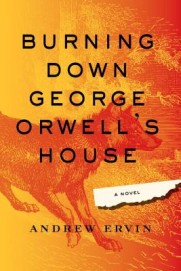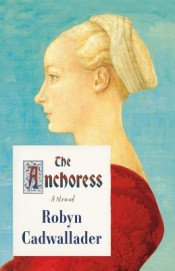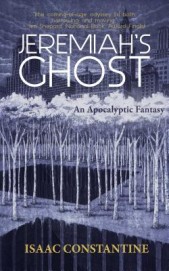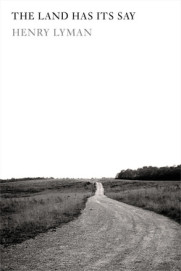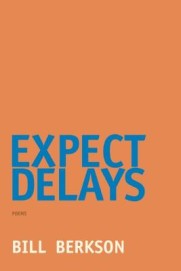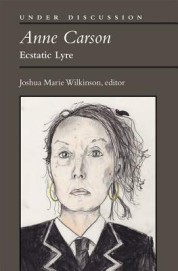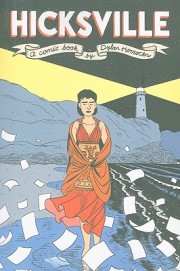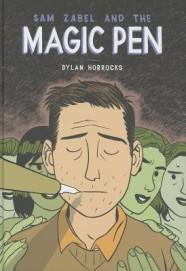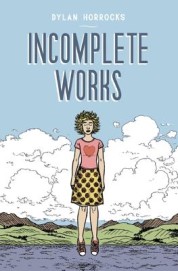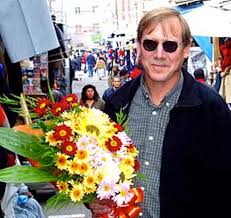
photo by Forrest Gander
by Michael Boughn
For anyone paying even the remotest attention to the U.S. poetry scene over the last twenty years, Kent Johnson needs no introduction. Described variously by certain parties as “thuggish,” “an unchained pit bull tossed in a schoolyard,” “a troublemaker,” and “criminal,” and by others as the “gadfly we deserve,” “refreshingly disturbing,” “preeminent,” and “vital,” his take-no-prisoners assault has continuously gone after the complacencies, stupidities, and hypocrisies of American life. Reinventing satire for the 21st century, his fiercely moral gaze and his imaginative invention of new forms of post-Fluxus agitation have drawn attention to the mass, blind obedience of Americans to the military/security state, as well as to the complicit, moral compromises of artists and writers in their drive for “success” in the contemporary cultural industry.
Johnson’s most recent book, I Once Met: A Partial Memoir of the Poetry Field (Longhouse Books, $20), is something of a departure. On one level, it collects reminiscences about his meetings with various poets around the world over the course of his poetic life. On another it invokes a generous, sometimes tender, sometimes tough, always honest portrait of the intricate, irreparable relations that constitute community. As much a prose poem as a memoir, it lovingly (and humorously) paints a rich tableau of the irreducible complexity of what might be called, following Giorgio Agamben, the coming community—including an unforgettable encounter with Emily Dickinson poolside in a bikini.
Michael Boughn: Kent, in some ways you are unique in the current “post-avant” poetry world: An intelligent, cosmopolitan, multilingual scholar who writes poetry and non-fiction, who is an accomplished translator and anthologist, but who is a loner with no group affiliations, just an ordinary guy who works in a small college and lives in a small mid-western American town. The pieces that make up I Once Met: A Partial Memoir of the Poetry Field reflect that relation to the ordinary, at least in their mode of address—2 am kitchen conversation over bourbon and a little smoke—an intimate familiarity of relation (even in its tender ruthlessness) that is so much part of our condition. What is your sense of the significance of the "ordinary" in our situation, both in terms of art and writing, and the larger realities they are part of?
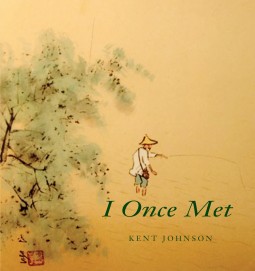 Kent Johnson: Thank you for the words “cosmopolitan” and “accomplished,” Michael, even if—knowing myself better than you do—I can quickly think of a dozen much less flattering adjectives to go along with them. Not that I’m the only one who could. Some of the others would be fellow poets, I’m afraid . . . Don’t traffic these days in satire, / poet, unless you desire / to be a small-town loner, / like William Stoner.
Kent Johnson: Thank you for the words “cosmopolitan” and “accomplished,” Michael, even if—knowing myself better than you do—I can quickly think of a dozen much less flattering adjectives to go along with them. Not that I’m the only one who could. Some of the others would be fellow poets, I’m afraid . . . Don’t traffic these days in satire, / poet, unless you desire / to be a small-town loner, / like William Stoner.
Now, I like your notion of “ordinary” in relation to I Once Met. I think, yes, that its various entries all seek, in their different moods, to engage the quotidian and everyday of the poetic field, which is, like all things sociological, poignantly ordinary and human beneath the posturing at its surfaces. And in so doing, the entries try to find some measure of common hilarity or surprise therein, whatever it might be, using perfectly common parlance as the instrument of view. Of course that view is necessarily skewed by my own eccentricities and neuroses, though thankfully I don’t have as many of those as most other poets. No, just kidding.
But seriously, the decided drift of “experimental” poetry in the U.S. has been, for the past forty or so years, toward the smug, esoteric, and quasi-teleological range of affect, I’d say, its adepts sporting their crème de la crème presumptions with an importance of being earnest little seen since the fin de siècle. Albeit without a guiding temper of satire and wit to comparably recommend it. In any event, the tendency at issue is fairly contrary, safely said, to basic senses of the ordinary. A fair number of these writers are terrifically gifted, to be sure, but that’s neither here nor there.
It used to be that heterodox poetry, at least in the U.S., had some serious interface with the ordinary, and was more all-embracing for it. Think of Whitman and Dickinson and Williams and the Objectivists, for example. Or of the New American Poetry period, not so long ago—so informed, across its schools and strains, by everyday life, demotic language, and a decidedly non-professionalized sociality. But that down-to-earth ambience of the field more or less went poof with the ascent of Language poetry and its obsessive conflation of poetic vocation with theory à la mode (much of the latter of pseudo sort, we now know). Not that we don’t want theory. It’s that now, much due to that overdo, “avant-garde” verse has moved on to get conflated, rapidly and willingly, with the Academy, to the point where we haven’t had an institutionalized habitus like it since the New Criticism. Penn is our new Kenyon, and the prominent Presses, Literary Prizes, and State or Corporate Fellowships leash the values of attention.
So the “experimental” has moved, by and large, more and more away from the ordinary, I’d propose, to become increasingly mandarin, highbrow, and recuperated in its forms and dispositions. Recently dead-by-its-own-hand Conceptual Poetry showed us, and with insufferable Warholian hauteur, the clearest, most cynical acquiescence to those ideological conditions, even as the group’s proponents proclaimed their devotions to the banal and prosaic.
I like this word ordinary, now that you’ve raised it, Mike. Yes, it seems to me the next avant-garde, should we get one, will need to be ordinary with a vengeance.
MB: Well, that was certainly the push that came out of Williams’s work. And later Zukofsky and Oppen and that bunch with their Marxist orientation. And, strangely, Stein’s as well. Tender Buttons explicitly addresses itself to the ordinary world of our experience—vases, boxes, roast chicken, the rooms in our home. You could argue that she attempts throughout her writing life to recuperate the ordinary. It is not the banal and prosaic, in the sense that you locate in ConPo. That is the death of the ordinary. Emerson claims that the problem with Americans is that they don’t know what the ordinary is, that they have yet to learn to sit at the feet of the low and the common. Of course it is tied to the problems and promise of democracy, because, I think it is safe to say, democracy is the politics of the ordinary. Exactly how do you think that politics is relevant to poetry? Or vice versa. Is this part of poetry’s work? And, if so, in what sense?
KJ: So that’s a big barbell of a topic. You’ll have to forgive me if my arms come off when I try to lift it. But to mention my own vote for our greatest master of the overlooked ordinary: Lorine Niedecker. I was having dinner years ago at a now-defunct, salt-of-the-earth supper club called Club 26, outside Fort Atkinson, Wisconsin, and I looked to my right and there was a framed typescript on the wall with her signature. The poem titled “Club 26.” I was sitting at the very table where she and her husband fancied sitting for Friday night fish fries. I’m not kidding. The near-same thing happened to me about two years back with Pablo Neruda, in an old bar in Valparaíso, Chile. There on the wall, with photo, was a handwritten note by him to the former owner; I was drinking pisco sours in his favorite booth. I seem to be avoiding your question.
Anyway, poets—particularly those of the Left sort—have been pondering and arguing out that vice-versa you evoke for a long time. As have some notable non-democratic types, if with more certainty and antithetical intent. Like Plato, say, whose prescriptions and proscriptions have been enacted by the Culture Industry better than any mass banishment of poets to Liars’ Gulag Resort on Lesbos, or wherever.
A poetry of politics or a politics of poetry? A lyrical politics or a non-lyrical poetics? Form as politics or formalism as apolitical? Poets of the court or a court of poetry? Poets as legislators or poets in exile? Poetry as autonomous or poetry as heteronomous? Alas, the democratic problem for poetry is pretty much as old as the problem of democracy’s nature itself. No one has figured either problem out, yet. Assuming there’s an “either” in the terms of the matter, that is.
We know from the past century the bad consequences of definitive resolutions on the question of what a “democratic” poetry should or must do. Though even there it gets tricky—or maybe scary is the word—since some of the most powerful verse of “ordinary democracy” was written by vanguard folks who’d pledged this or that allegiance to an order that was, quite literally, poetry-killing. Mayakovsky, Vallejo, Aragon, Éluard, Neruda, Hughes, Brecht, Hikmet, Oppen, Césaire, Rukeyser, for example.
Currently, close to home, as it were, we have a campus-tethered coterie of Bay Area poets who like to give the impression they’ve resolved the riddle of the vice-versa, too. They can come off a bit toffee-nosed and uptight in their pronouncements, but they are smart, and on a larger scale contribute, of course, to the ever-unfolding dialectic of the question you pose, even as the distorting effects of an in-group strabismus get sometimes refracted. As with a recent squawk of ultra-gauche infantilism by their leader, who proclaimed that “People think that cops need to be reformed. They need to be killed.” Or as with, in the case of another, a self-congratulatory protest poem (praised in the New York Times, a fact they’ve proudly been announcing) that pins the hopes for much of its emotional gravitas and bona fides on a very distanced, ironic, hipster appropriation of a word that was coined in the African-American community for a substance-induced (usually) ecstatic state. Well, racism in the history of Marxism is complicated. But where am I going with this “answer”? My arms have come off.
In any case, here’s something I wrote a few months back for Lana Turner journal, which proposes, in openly provisional ways, a possible site for the practice of some ordinary poetic democracy. Not in aim of some program that might mend differences in a superficial unanimity, but rather in spirit of a fluid, collective, even conflicted praxis. Of course, the proposal runs up against the hard facts I touched on in my first answer. Facts that make my proposals nigh utopian in the current conjuncture, I realize. But precedents, some of them heroic, are certainly there as inspiration.
MB: You are notoriously associated with a critique of what you, following Michel Foucault, call the Author Function—which, it can be argued, is very much tied up with these political questions arising from the crumbling of a decrepit bourgeois individualism and its ownership and consumption duties. That wouldn’t be a problem if you restricted yourself to domesticated academic analyses to be read at the MLA on a panel with Charles Bernstein and Barrett Watten, but you insist on being involved in elaborate—“hoax” is too larcenous in its implications and “performance” is too containing a word to describe what happens—“events,” I think is appropriate, “wild events,” in the Fluxus or happening tradition, although actually unique, I think. The difference is that instead of a gallery or performance space, these wild events occur in the world and the participants are drawn into acting out, revealing, deeply political forms of being they would rather not be aware of or have others aware of. I have often thought that if people had more of a sense of humour, we could all just have a good laugh together (which I will get back to later) over Yasusada or a misattributed O’Hara poem. But no, they (poet/owners, curators, editors, explainers, and critics) all get their knickers in twist about “forgeries,” “hoaxes,” “cultural appropriation,” and “true authorship,” and you become damned as a “troublemaker” and even accused of “criminal acts.” I Once Met, begins with that troubled word so much of your work is involved with: “I.” Who is this “I” and how does it differ from the focus of your critique?
KJ: The Fluxus-effect connection you make might be the most unexpected comparison my writing has ever received. And I thank you, very humbly, as I pour myself a drink to abate the jolt of it. As for your concluding question, which makes me want to pour a second one: I don’t know. Maybe, as Zhou Enlai once purportedly put it, on a subject of greater import (answering a question about the historical implications of the French Revolution), “It’s too early to tell”?
The idea of, and desire for, a fourth-dimensional poetics that subverts strictures of attribution so as to move beyond the page into fictional “event” (by which I mean no allusion to the Maoist Badiou) or a kind of living theater is something I’ve talked about in places and tried in my own quirky way to carry through. I Once Met isn’t really a part of that, I don’t think. But it’s funny you mention it and Fluxus in the same question: I actually had an extended entry for the book that brings in details of various strange textual finds, most all of which are extant in my little collection of autographed books and ephemera accumulated over the past many years, mainly poetry stuff—I’ve got around five-hundred items, some of them quite special. A couple of wonderful things I’d found, and which I wrote about in that entry, are now tragically lost, and one of them was an original copy—signed and dated 1966 by George Maciunas, to a performance artist of Argentina—of the Fluxus manifesto of 1963. I’d discovered it in a derelict bookshop in Montevideo, Uruguay, about eight years ago. I forgot to include the entry in the final manuscript. That’s sort of a digression, I guess.
One demurral, though: I have never claimed authorship of the Yasusada writing, and I never will. I have stood as the work’s executor, only and simply. We’re doing this for Rain Taxi, and some years ago the magazine and Walker Art Center invited me to give a lecture about the “forgery,” which I presented in midst of a retrospective of the art of Richard Prince, an accomplished forger, if there ever was one. The text of it came out in a book of essays on the controversy, so it’s available. But I’m pretty well retired now from debating the case. And I’ll pass on debating here, despite the Yi-Fen Chou spectacle of the past few days, to which Yasusada is now being compared (from The New Yorker, to Salon, to PBS, to the Christian Science Monitor), in tritely facile ways. It was good to see the admired Chinese-poetry scholar Lucas Klein weigh in with a clear corrective in that regard. Anyway, these controversies seem unavoidable to the work’s nature. There’s an extensive critical bibliography by now, with more coming, I suspect, and people will make up their minds as time goes on. As a side note, and amazingly enough, there’s a full-length film script—a fictionalization of the Yasusada affair—making the rounds in Hollywood as we speak; it was a finalist for the Academy’s main prize for young screenwriters last year, and it’s getting some buzz, I’m told. But producing an independent film is always a longshot wager; we’ll see what happens. If it’s produced, every cent of royalties is destined, by already signed legal agreement, to the Hiroshima Peace Memorial Museum foundation. Same as all royalties from Doubled Flowering were directed to anti-A-Bomb causes.
That said, you’re right that much of my own work, from The Miseries of Poetry, to Dear Lacan, to Works and Days of the fénéon collective, to the Rejection Group project, to Doggerel for the Masses, to A Question Mark above the Sun, is framed around or within figments and uncertainties of authorship. And you’re right to gently suggest, if I’m right that you are, that this new book, I Once Met, seems to be a departure from that speculative tic, inasmuch as it’s located in something like what you might call the conventional claims of non-fictional testimony (poetic-trauma testimony?), even the sections of it that refer openly to dreamt encounters. It’s all true, even the stuff I had to make up to deepen the truth of it.
The conspicuousness of the modal shift is interesting to me, but I’m not sure how to theorize it, vis-à-vis the Author Function, now that you’ve prodded me on it. I guess if someone were to propose that the compulsive “I” of the new book is that very Function coming back in vengeful demand of compensation, igniting the prose into a bonfire of narcissistic self-immolation, I’d have a hard time countering. What do you think? Clearly, I’m copping out on your question.
MB: Well, I think I will argue with you about that, if I’m allowed. Not all “I”s are the same, or, you could say, there is no identity to “I”. And the I in “I once met” seems less an identity or an owner/consumer or self-obsession than a site that opens into an exuberance of relation, an overflowing of world stuff—knowledge, mood, idea, laughter, geography, history, memory, love—in language. Each of the pieces that opens out of that "I" registers for me as a deep generosity rooted in the generosity of language itself. And in that sense, I would argue, opens into a new political possibility, what Jean-Luc Nancy calls “being singular plural” which is one of the thorniest and most difficult political questions we face, after the catastrophic failure of various historical attempts to recover the communal as a social and economic reality, to address that crucial dynamic between each and all. I Once Met is community at its most vibrant and irreducibly heterogeneous and the experience of that is grounded in your poetics.
Poetics and politics go together, don’t they? I mean in terms of the politics of poetry as opposed to the politics of poets. The "poetry war" that followed from Don Allen's New American Poetry, 1945-1960 and its declaration of independence from the stifling complacencies of officially sanctioned verse, was political. And in an expansive sense that often included active opposition to the various U.S. acts of international aggression and active support for the struggles of various peoples fighting for equality and an end to state oppression. Perhaps most importantly, much of the poetry challenged the prevailing imagination of “reality” that justified and normalized those horrific inequities. That poetryknowledge, if I may coin a term, which is tied to poetics, was one of the driving forces of the resistance to the authority of the state.
Now, I am hard pressed to find more than cursory mention of poetry or poetics in the current "poetry wars"; the warring factions seem primarily to be concerned with the distribution of power in the “poetry community,” which is a microcosm of the larger social/political world. The participants especially seem to fight among themselves over social/economic power including access to teaching positions in the Academy, the juries and panels that rig the poetry contests and the distribution of art booty, and the occupation of some low rungs in the celebrity sector of the U.S. culture market. Integration rather than resistance (although sometimes feigning resistance which then becomes part of the commodification process). Would you agree? What do you think that shift within the discourses around poetry means, if anything?
KJ: It’s not that those non-poetic asymmetries you elicit are just pretend, of course. Some of them are certainly real, and they demand attention. But as my barber said to me the other day, with a razor to my neck: A measure of skepticism in the abstract regard can be a friendly companion to finer perspective. And help us see that grievances which attend the perception of those misalignments are never autonomous or innocent in character, nor, moreover, purely ethical in impulse, either—not even when grandstanding, vindictiveness, and opportunism may seem on leave, which in the poetry world, to be sure, will be rare. Aggressive or passive in kind, those claims are always-already (as they used to say back when I was in my twenties) subtended and fueled by position-taking energies that are immanent to the operations of a cultural field. Which is to say that grievances and their advocates are, in bedrock ways, structurally situated and directed in their drives, and that the justice or injustice of a situation is but a role of the dice to the rules of the game. No one gets an exemption, not even Bourdieu. That’ll be $18 for the haircut and $15 for the shave, he said, dabbing the blood from my neck.
And it is a different situation now, isn’t it, Mike? About twelve years ago, in a piece for a forum concerning the “Post-Avant,” I believe I was the first to home in on Language Poetry’s pragmatic pivot toward a modus vivendi with cultural officialdom. The turn had been announced in a long interview of Charles Bernstein by Marjorie Perloff; therein, the former proposed that the urgent vanguard task of the day was to colonize what he called the “PWC” (i.e., Publications of Wide Circulation), and thus move radical poetry from the incompatible margins to the influential center, a process that was already organically underway, of course, but which Bernstein—fresh from an AT&T Super Bowl ad, an Endowed Chair appointment, and recent PWC publications of his own—felt should be programmatically pursued with more communal vigor. Perloff agreed, and so did a whole bunch of other people, apparently. This was circa 2002. The revisionist program’s been wildly successful, as we know, and is, by now, basically complete. The “post-avant” presently sits as the arriviste opposition in the Congress of American Poetry, with titles, offices, a surfeit of young staff, and amenities of junket, domestic and international. And the PWCs and University Presses and venerable Prizes now fall all over themselves to welcome the vanguard to the sanctioned fold. The Pulitzer, the NBA, the NBCCA, UPs right and left, The New Yorker, the Academy of American Poets, the MLA, the AWP, the NYTBR, Endowed Professorships, Essay Anthologies on how to teach “Experimental” poetry, the White House, and on. Here we are.
Thus, the non-poetic symptoms you nicely identify are dialectically embedded in the non-poetic affliction, to the point where distinguishing one from the other can be tough. That affliction is, crucially, the deep institutional capture and infection of what was once, and not so long ago, a robustly autonomous and culturally combative poetics. And so the symptoms that ensue from the self-invited malady are no surprise: They are, to great extent, as my barber had suggested, inwrought enactments of the Rules of the Game, where poison will be taken as cure—not so much out of mistake, but because the former is the approved and prescribed medication on offer.
Sometimes, you know, the matter of the pharmakon is not so metaphorical, as with the Poetry Foundation that Big Pharma built, where nearly all poets, mainstream or not, are scrambling now to be. Or, in one remarkable case, from where a few young protesting bards had to scramble away, when the PF sicced the cops on them for sharing some leaflets and dropping a couple beautiful, idealistic banners (quickly torn down and destroyed by the outsourced PF Security Detail). Of course, hardly a single U.S. poet dared risk an opinion about the matter. Professionally inadvisable to do so, it would appear . . . One had to turn to the great J.H. Prynne, in England, for expressions of outrage directed at the PF’s conduct, or else to the great Raúl Zurita, in Chile, for expressed solidarity with the scruffy Infra commandos. In other words, speaking in semiological terms, the behavioral symptoms are not so much related by way of contiguous indexicality to their institutional referents; they are, more precisely, iconically performative of them, and in the sense of a sociological onomatopoeia.
I should point out that this answer, with all its comical or heartbreaking academese, strongly suggests the degree to which the radiating affliction afflicts me.
MB: Not so comically, but maybe heartbreakingly, for you: In a recent long manifesto by a group of anonymous women poets, you were mentioned as culpable of a misogynist remark, purportedly made on the UK Poetry List. What was that all about, if you don’t mind talking about it?
KJ: You’re referring to the UK Poetry List meltdown of last year and the anonymous “NO Manifesto,” published some months following. I was accused in that manifesto, and by name, of having dismissed a List member’s personal account of rape as probably an inaccurate retelling of what must have been little more than “just drunken fun.” That’s what this group claimed: that I mocked her experience of rape as amounting to a bit of “drunken fun” . . . I’m not going to go into the perfectly relevant questions I raised (the thread was about sexual abuse in literary venues and what to do about it), nor, either, try to explain the stupid lack of tact on my part in raising them in immediate context of the person’s courageous account (even though similar questions have been posed by numerous progressives, including leading feminists). And for which lack of tact I profusely apologized. But the characterization of my words by the anonymous NO group is an outright falsification; I never said, nor even came close to implying, such a heinous thing, and I never would, as would be obvious to anyone who knows me. And that such a grossly fabricated accusation would be advanced in print perhaps illustrates the degree to which a quasi-Show-Trial temper has lately seized the Avant arena, where there seems to be (the imperative nature of issues like misogyny and racism notwithstanding) a strong, sudden nostalgia, among some, for the good old days of 1937-38. It’s ironic, to say the least, that a few days before the thread on rape and sexual abuse began on the UK List, I had posted to ask if it wasn’t clearly time for Left poets in the U.S. and the UK to begin calling, in public, coordinated ways, for the defense of Yazidi women and children in Iraq, who were—and are—in horrific process of suffering widespread rape and abduction. The question received not a single response.
MB: That “NO” manifesto appeared in Chicago Review. Were you angry at the journal for having printed the character assassination?
KJ: No. Chicago Review has a venerable history of welcoming controversy. The editors properly alerted me that something of a personal charge would be appearing, and they told me I would be given the right to a full response in the issue following. But the claim by the nameless authors turned out to be so absurd it was unworthy of a direct riposte. Nor did a direct riposte seem worth exchanging for possible further distortions, frankly, in what would have been their “last-word” reply to me.
MB: One of the many things I love about your work is that it makes me laugh, really laugh out loud. Not in a mean way, not at someone, but with a kind of joy that breaks out in the face of life’s strangeness, a strangeness that manifests in surprising divagations and unexpected extravagances. It’s a quality widely lacking in writing today, perhaps because they can’t teach it in an MFA program. And it’s not like the Henny Youngman stand-up routine of certain older contemporary poets. There is deep political edge to it, much of it self-implicating, like that razor to the throat you shared, perhaps. How do you see the role of laughter in writing and political engagement?
KJ: You’re probably better suited to answering the question than I—really, Mike, I’ve got to say this, even at risk of seeming like I’m repaying praise (also a pervasive operation of the Field of Poetic Production!), but I genuinely feel this and have said it to others, too: Your epic, Cosmographia, is one of the great unleashings of poetic fabliau and humor of the past decades—there hasn’t been anything like it since Dorn’s Gunslinger, and its singularity, I predict, will be more widely seen, whether they come around to it in the MFA programs, or not. But let me poach myself, from the Lana Turner piece I cited before: Satire’s critique must not only be turned “outward” toward the greater political arena; it must simultaneously, organically, be turned toward the ideologies and behaviours of the poetic sphere itself, and, not least, upon the privileges and blithe accommodations of our Academic-avant set. This will mean, no doubt, that any radical, collective poetic endeavour down the road will be engaging in plenty of self-satire, too. How could it not? After all, what right would a breakaway, insurgent-Left poetics have to any global social critique if it couldn’t attend to the actually existing power structures of its own general economy? What credibility and authority would it have, if it didn’t recognize its own poignant limitations and incompleteness? The ways in which we are all implicated? Who would believe it, otherwise? Like the Romans and the Greeks, humour and satire, in all directions. We must laugh, without mercy, at ourselves.
MB: I think we have time for one more. This is a really big question, but hopefully you can come up with a measured answer. You are critical of the way in which much of the poetry today that presents itself as radical is in fact produced as a commodity for a market in which it will be exchanged for authority or a prestigious position or at least remuneration within and by the very system it proposes to attack. The old fashioned name for this is hypocrisy or moral corruption. It seems to me that such a critique, which I think is obviously right on, assumes a sense of some other possible work of poetry that such hypocrisy betrays. What do you think that work is or might be?
KJ: It is a big question, and your succinct, eloquent phrasing of the conditions that make it a pressing one allows me to dispense with any background lead-up to an answer. And my answer is (my speculations just now about self-critical satire aside) that no one much knows, and the unknowing is the way it should be. Unsuspected pathways will be glimpsed within sovereign zones of collective praxis, outside and against the drag and deflection of professional inertias, and those glimpses will likely surprise us—and maybe surprise a new, broader audience, too. But not yet. There’s some digging-out to do, first, from the hole of hypocrisy the “avant-garde” has made for itself. Not that I’d claim to not also be down there in it.

